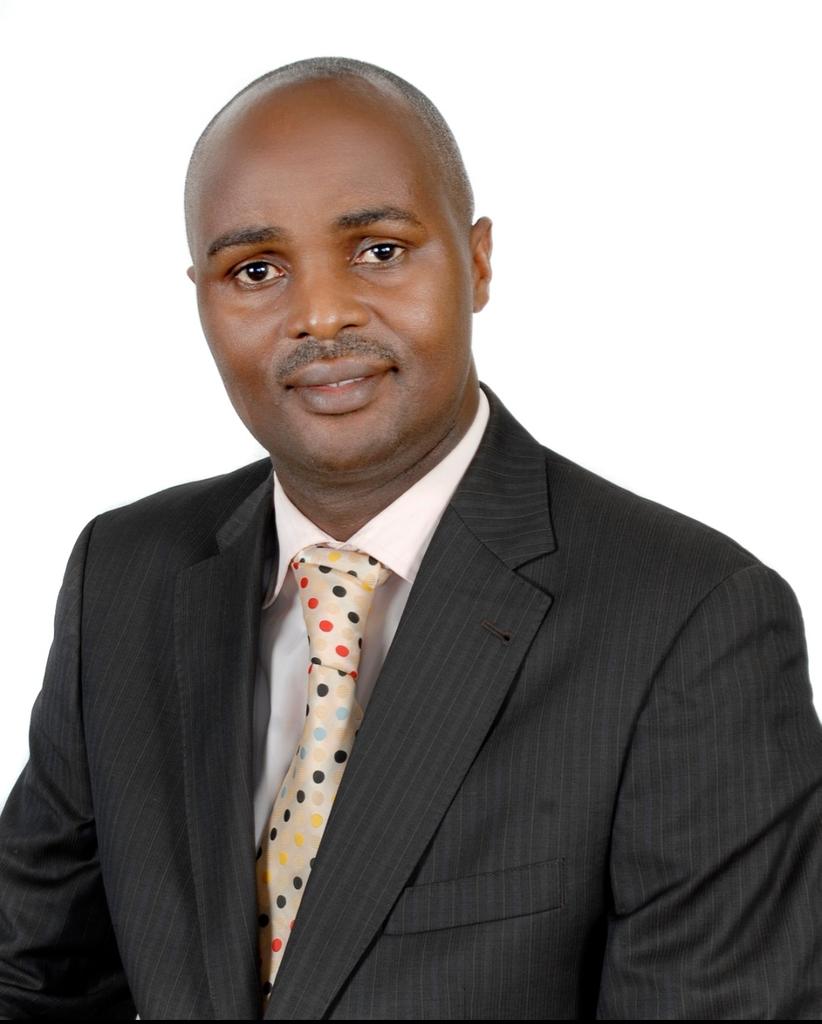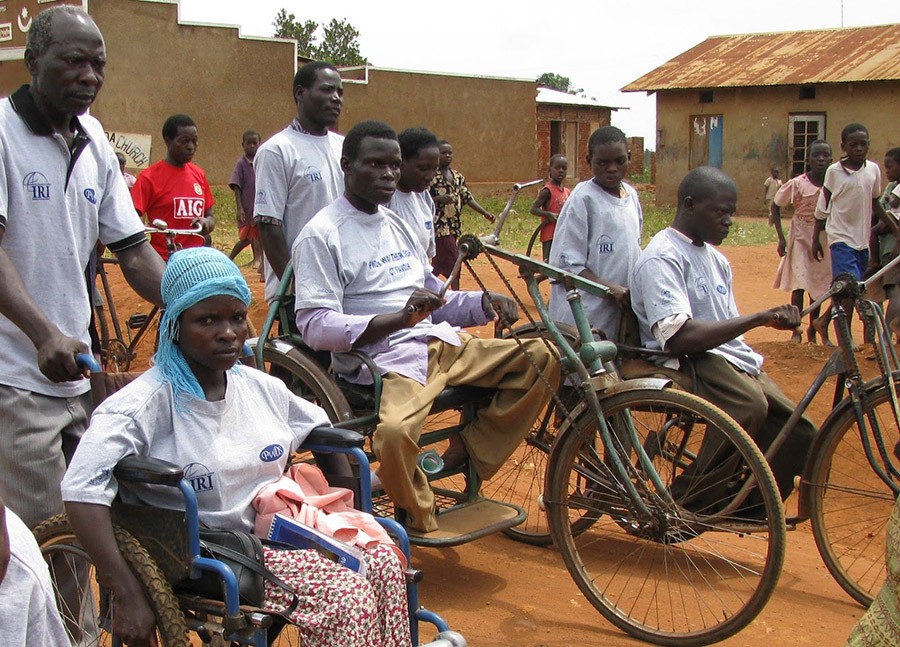
Opinion: Covid-19 imposes heavy burden on PWDs


Ngirabakunzi Edson
NUDIPU an umbrella organization of persons with disabilities in Uganda expresses great concern that the COVID 19 will have a disproportionate burden on lives of persons with disabilities In Uganda.
The impact Coronavirus pandemic will be lethal in lives of persons with disabilities who are the most vulnerable people and yet in their daily lives depend on third parties such as helpers and guides yet the
pandemic strategies require social distance which is partly compromised by the nature of our disabilities.
For instance, the virus spreads through inhalation if somebody with the virus coughs or sneezes near you. It also spreads when the infected person pollutes surfaces such as tables, door handles, etc.
On 31st March 2020 the President of the Republic of Uganda set out more stringent measures for 14 days in order to decisively defeat the virus by issuing more directives.
All the directives and pronouncements need to be disability friendly and inclusive of disability needs and concerns.
As of now the all the directives and not strong and disability responsive especially on key disability
barriers.
The directives and any other COVID-19 response should ensure persons with disabilities are not left behind in the fight of the pandemic.
Persons with disabilities constitute 12.4% of the population and therefore any intervention and strategy that does not include persons with disabilities will in long run prolong the COVID-19 eradication in Uganda.
There are various disability specific barriers that the government and other stakeholders need to understand and appreciate while planning and managing COVID 19 response in Uganda.
They include the following:
1. Persons with disabilities are at increased risk of developing more severe symptoms and dying due weak immune system, inaccessible health care institutions, homelessness, neglect, experiences of discrimination and traumatization in the systems.
2. Persons with visual impairments for example are susceptible to contracting COVID19 since they heavily rely on third parties such as guides/helpers to in their day to day lives. As we are practicing social distancing of at least 4 meters, this is hard for persons with visual impairment since they have to depend on support persons while carrying out their daily duties.
3. Communication gaps such as lack of sign language interpreters at the health centers make it hard for deaf people to access proper health facilities since they are not able to effectively communicate with the health
workers.
The requirement of calling RDCs on phone in case of emergencies will be difficult especially certain categories of persons with disabilities such as the deaf. This implies such categories may go unattended too hence
worsening the fight against Covid-19.
4. The inaccessible health centers and facilities make it difficult for person with disabilities to access the services due to the limited ramps and some of the ramps available do not meet the accessibility standards that are in the Building Control Act.
5. There exist barriers in accessing health information on how to protect themselves against the virus and how to manage it in case of anything. Some disability categories are disadvantaged for instance the deaf, blind
and the Deafblind persons when the information is disseminated inaccessible modes.
6. There is no standard operating procedure or circular on how to deal with vulnerable members of the pubic such as persons with disabilities and specifically pregnant women with disabilities in the COVID 19 response.
7. All the COVID 19 response such as mitigation plans and COVID 19
committees are not having representatives of persons with disabilities to
provide expert opinion on disability management.
Recommendations from NUDIPU;
1. Ensure respect and protection of the Rights of Persons with Disabilities as enshrined in the international and National instruments during this COVID19 Pandemic and in all the measures being undertaken at the national and local level.
2. There should be affirmative action measures in place to enable persons with disabilities to immediately access the Resident District Commissioner to get temporary permission to access emergency health care. We request that at least two (2) vehicles from NUDIPU should be given stickers and allowed to be on road to specifically help Persons with Disabilities in exceptional circumstances through our networks.
3. Provide information about COVID-19 mitigation tips, public guidelines restriction plans and services offered in accessible formats for example; braille for the visually impaired and access to sign language interpretation
during any of the press statement and briefs by the government.
4. Ensure that persons with disabilities who are infected have equal access to quality healthcare services without discrimination of any kind.
5. Government should cater for the needs of persons with mental illness and epilepsy who entirely depend on drugs to live healthily by setting up clear guidelines on how they are to access their medication while minding
about their safety during this pandemic.

6. The law enforcement agencies should be instructed to guard against torture of the Persons with Disabilities using personal cars and their guides in their attempts to access the services.
7. There should be a well-coordinated plan by the District Task Teams on how to handle persons with disabilities by engage disabled peoples organisations at national and district levels. .The leaders of persons with disabilities from village to national level should be a resource to use by government in the fight against eh pandemic.
8. Persons with Disabilities to be given first priority among those to benefit from the food supplies and other services that shall be offered by the government and provide accessible data of persons with disabilities who
have benefited through updates by the government team.
9. Government should work with persons with disability representatives at local levels to support the LCs in identifying and distributing food supplies.
10.Provide sign language interpreters at various isolation health centers to ensure that the deaf people get equal access to services during the COVID19 pandemic. Efforts should also be utilized to ensure that the
national address on COVID-19 is accessible to all persons.
11.Conduct community outreach activities to identify and rescue persons with disabilities who are ill-treated at home or within communities during this pandemic and provide adequate support to them in a manner that
respects their human rights.
12.Ensure that persons with disabilities who are homeless during the period of social isolation are not mistreated by authorities and are provided with water, food and shelter on equal basis with others.
13.Consult and actively involve NUDIPU, and the representative organisations of persons with disabilities in Uganda on how best to respond to the COVID-19 outbreak in a disability inclusive manner.
14.Persons with disabilities that may require quarantine should be put in a places with reasonably accommodative facilities like toilets, accessible infrastructure to ease their mobility among other support services.
15.All security agencies involved in the COVID 19 response should be briefed about disability management on how to handle disability issues and persons with disabilities. This briefing and sensitisation should be done at all levels.
16.Provide affirmative treatment to persons with disabilities who may fall sick during this time without having to first seek permission from RDC.
The author is Chief Executive Officer, NUDIPU
The post Opinion: Covid-19 imposes heavy burden on PWDs appeared first on Nile Post.
0 Response to "Opinion: Covid-19 imposes heavy burden on PWDs"
Post a Comment